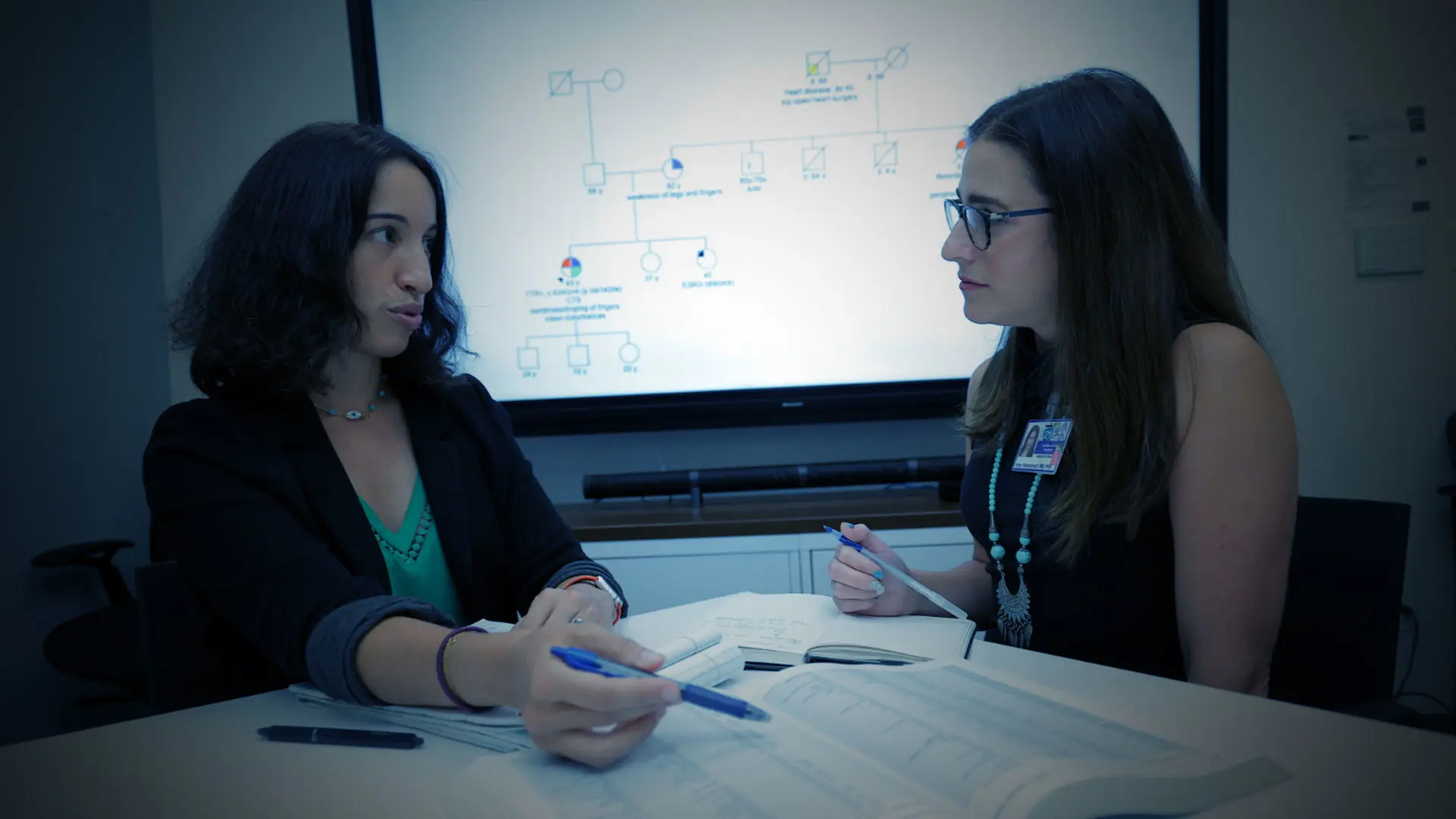In the same way as blood pressure and cholesterol tests have long been routine, genomic screening is emerging as a critical tool in the clinician’s armamentarium.
As Noura Abul-Husn, MD, PhD, founding Chief of the Division of Genomic Medicine and Associate Professor of Medicine (Genomic Medicine) at the Icahn School of Medicine at Mount Sinai, puts it, “Medical genomics is no longer restricted to testing pediatric patients for rare Mendelian diseases. We now know that genomics plays a role in every major disease and every specialty of medicine, and by using genomic screening to determine an individual’s risk, we can tailor their care to prevent those diseases from ever occurring, or at least improve the outcomes.”
One way genomics is interfacing with patient care is through the BioMe Biobank, an electronic health record-linked biorepository embracing more than 60,000 patients who have been treated at Mount Sinai. Under a new initiative—the Genomic Screening Program—consenting BioMe participants can now receive clinically confirmed genomic results for actionable conditions, and be advised of appropriate referrals and other measures to address the findings.
A challenge for the field of genomic testing has been cost and insurance coverage. Today, individuals are typically not covered unless certain clinical criteria for testing are met, such as disease-related personal and family histories. Dr. Abul-Husn expects that studies to emerge from her program will directly address this issue by showing that genomic screening, regardless of family disease history, can lead to improved long-term outcomes and reduced health care costs.
"Medical genomics is no longer restricted to testing pediatric patients for rare Mendelian diseases. We now know that genomics plays a role in every major disease and every specialty of medicine."
Noura Abul-Husn, MD, PhD
The Genetic Screening Program recently figured in a Mount Sinai study that highlights the potential of genomics to transform the care of ancestrally diverse patient populations. The investigation centered on the gene TTR, and the fact that up to four percent of African Americans and one percent of Latinos in the United States have a disease-causing variant, V142I, in this gene. V142I is associated with hereditary transthyretin amyloidosis (hATTR), an under-recognized systemic disorder that greatly increases the chance of cardiomyopathy and heart failure.
Genomic and cardiovascular specialists in the Department of Medicine teamed up to determine if population-based genomic screening could effectively identify people at risk for hATTR and, if so, prompt them to take preventive action. The researchers studied a patient cohort that received TTR V142I results through the Genomic Screening Program, and in a paper published in the Journal of Personalized Medicine, reported that of the 32 participants with V142I, 56 percent had hATTR-related features. Just as importantly, the majority of them opted for follow-up care with a cardiologist.
“Identifying patients with hATTR early in the disease cycle is the key to realizing the benefits of newly approved targeted therapies that suppress and stabilize TTR,” says Amy Kontorovich, MD, PhD, Assistant Professor of Medicine (Cardiology) at Icahn Mount Sinai and co-author of the study with Dr. Abul-Husn, its senior author. “Our work clearly shows that genomic screening has the potential to identify treatable diseases that individuals are so often unaware of, or which were simply missed in the course of routine clinical care.”
While the new Division of Genomic Medicine is firmly grounded in research, no less a priority is education: ensuring that providers across all specialties have the awareness and expertise to make genomics an integral part of their clinical care. “Physicians often don’t know when it’s appropriate to refer a patient who might have a remote family history of cancer or cardiovascular disease, for example, for a genetic evaluation,” explains Dr. Abul-Husn, an expert at marrying genomic data with electronic health records. “They can now have that consultation with our group, and from what we’ve already seen they’re really excited about being able to leverage our genomics expertise in ways they didn’t have access to before.”
To further spread the genomics message among non-genetic specialties across Mount Sinai, the Division has launched a Genomic Medicine Track for internal medicine residents. The program isn’t designed to turn these trainees into professional geneticists, but to increase their genomics knowledge, which in turn could be applied to whatever specialty they decide to enter.
“There are more than 140,000 commercial genetic tests now available, but the scarcity of people with genomic expertise in medicine severely limits use of that information,” Dr. Abul-Husn points out. “By serving as the hub of genomics expertise for the Department of Medicine, we believe we can find innovative ways to scale that information to improve diagnosis and treatment and, ultimately, prevent disease.”
Featured

Noura Abul-Husn, MD, PhD
Associate Professor of Genetics and Genomic Sciences

Amy Kontorovich, MD, PhD
Assistant Professor of Medicine (Cardiology)
